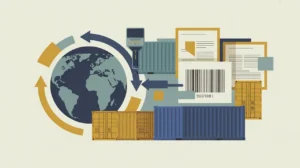Importance of Consulting
Consulting is critical in international development and social innovation because it enables organizations to access specialized expertise, fill knowledge gaps, and strengthen operational capacity. Many nonprofits and social enterprises operate with lean teams, making external consultants an important resource for designing strategies, implementing programs, and navigating complex compliance or technical requirements. Consulting also plays a key role in transferring knowledge across contexts, helping organizations adapt global best practices to local realities.
Definition and Features
Consulting refers to the professional practice of providing expert advice and services to organizations on a contractual basis. Its defining features include:
- Expertise on Demand: offering specialized knowledge not always available in-house.
- Time-Bound Engagements: focused projects with defined deliverables.
- Capacity Transfer: building skills and systems within client organizations.
- Adaptability: tailoring solutions to fit different cultural, institutional, and operational contexts.
How this Works in Practice
In practice, consulting engagements may involve strategic planning, monitoring and evaluation, financial management, fundraising, or digital transformation. For example, a nonprofit expanding its education programs might hire consultants to conduct a feasibility study, design curricula, or develop impact metrics. Larger firms often bring multi-disciplinary teams, while independent consultants may provide niche expertise with more flexibility. Challenges include high costs, dependency on external expertise, and potential misalignment between consultant recommendations and organizational capacity.
Implications for Social Innovation
Consulting has significant implications for social innovation because it can accelerate organizational growth, strengthen accountability, and expand access to technical solutions. For proximate actors, consulting is valuable when it respects local knowledge, prioritizes knowledge transfer, and builds long-term capacity. Social innovators can also leverage consulting as a career pathway, applying their expertise to strengthen systems across multiple organizations. However, consulting models must avoid extractive practices that prioritize donor agendas over community needs. When inclusive and collaborative, consulting becomes a tool that enhances agency, builds resilience, and drives systemic change.







